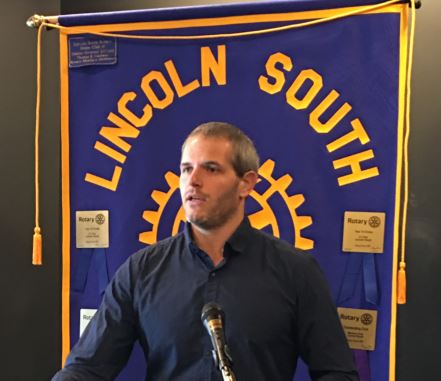On October 26 we heard about the work of Matt Mullen with market led solutions in marginalized societies.
Matt talked about communities around the world that have daily struggles - he talked about marginalized societies.
Marginalization is the process of pushing a particular group or groups of people to the edge of society by not allowing them an active voice, identity, or place in it. Through both direct and indirect processes, marginalized groups may be relegated to a secondary position or made to feel as if they are less important than those who hold more power or privilege in society.
Matt explained that market-led solutions which is a different approach to providing assistance to societies. In the past we would see things happen to provide aid but those did not provide more independence. With a focus on fulfilling a need we are only helping with the need actually creating a state of dependency.
An example is that we have provided clean water in areas by digging wells and installing water stations. So, they have clean water now. But they are no more independent than before.
Mullen said the market led solutions gained momentum because of the Bill & Melinda Gates Foundation - it became the paradigm.
In the past there would be analysis to determine the need. Funds would be raised to fill those needs. There was some success but in some populations millions of dollars were spent without little gain.
Market led solutions focus on creating opportunity - ways to impact the economy. There are still some flaws but it is believed that it will be more sustainable than the traditional needs based projects.
Matt outlined five key things to a successful market-led solution:
- Viability - create a product; people may buy for a cause, but will they buy again?
- Resiliency - may need to be confrontational and address the tough issues such as customs and cultural
- Capacity - are there the vocational resources to provide the training; is it reasonable to improve infrastructure if we cannot provide training?
- Communication - we often find that in marginalized societies they are just in survival mode and may not know what is available to them
- Connection - it is really about government; in many areas there is no reliable policy or judicial system; often the businesses need to be convinced to take responsibility to create a system of accountability
Matt shared examples of when the market-led solutions work and where they may not. Even though they may not work everywhere, it is still worth the time to study and analyze.
In North Korea for example he shared that they can certainly produce a viable product, they have resiliency as they are hungry but the opportunity is not there. They likely have the capacity. Communication and connection are the biggest challenges. Communication because they are not able to share and connection because the government would not likely allow any company to come in and try to change things.
During Mullen's studies, he focused on oppression and resistance in North Korea, Thailand, and Myanmar. In 2016, he published Pathways that Changed Myanmar, released through Zed Books.
